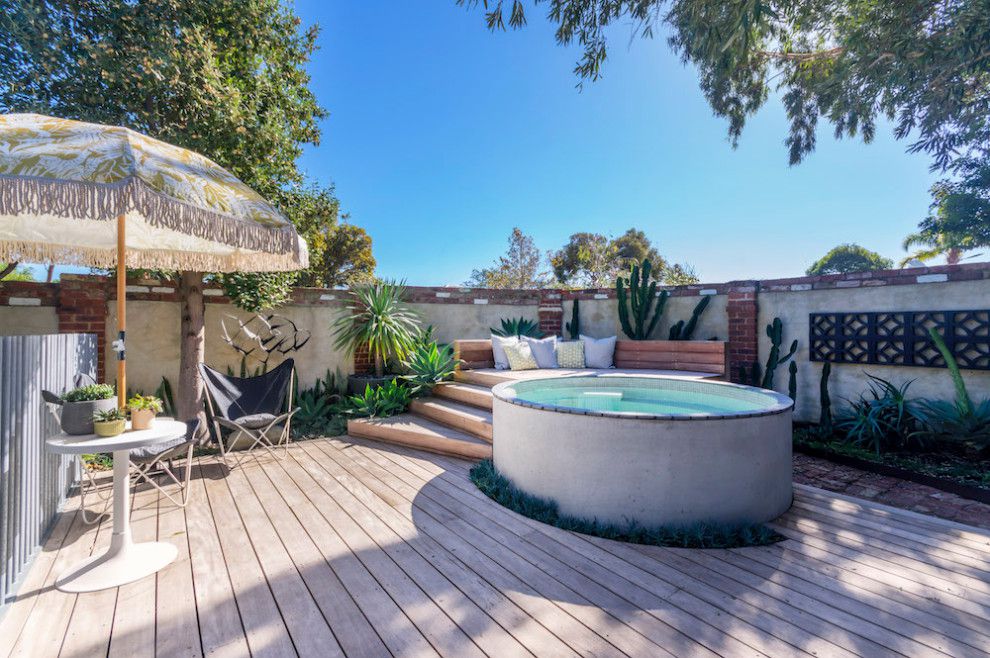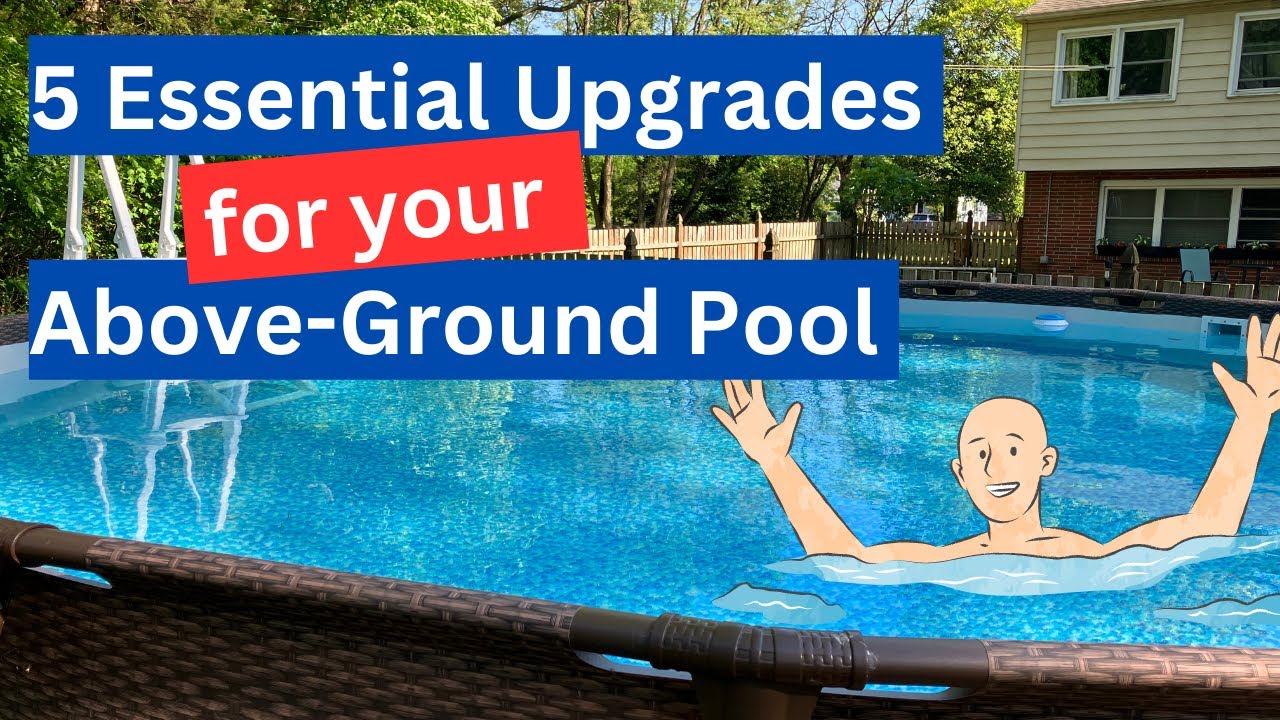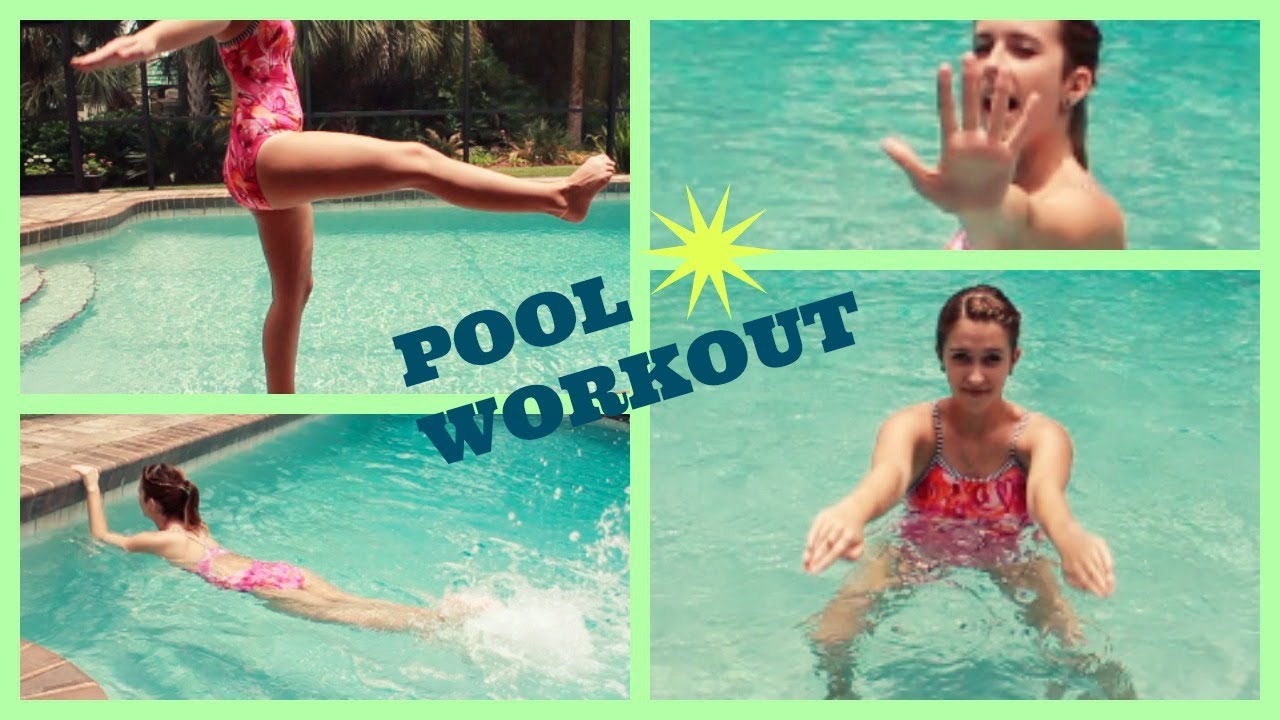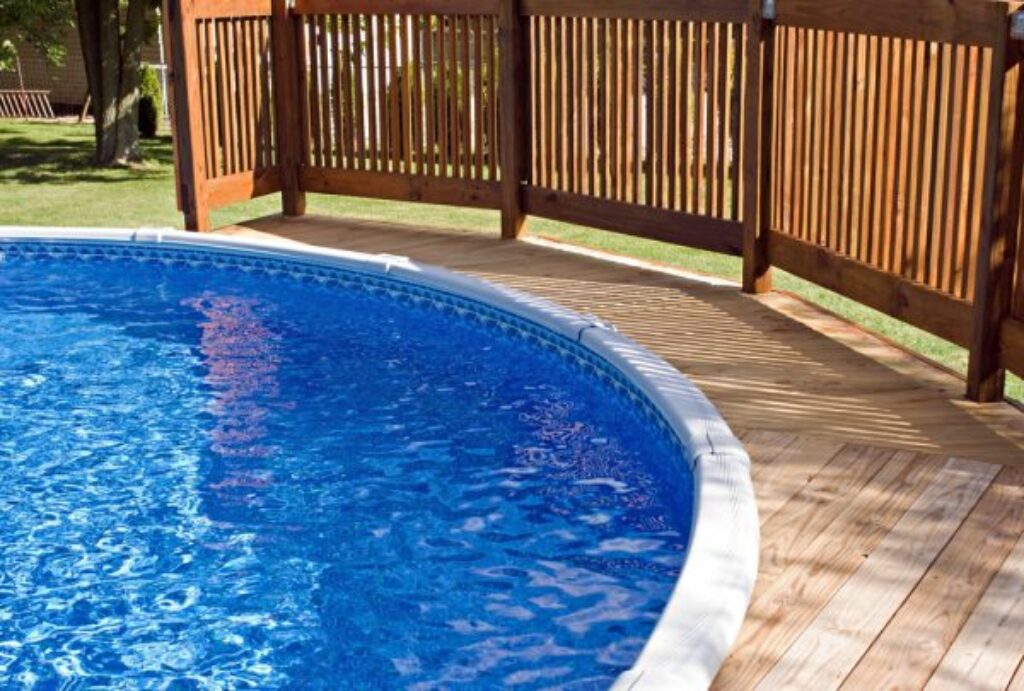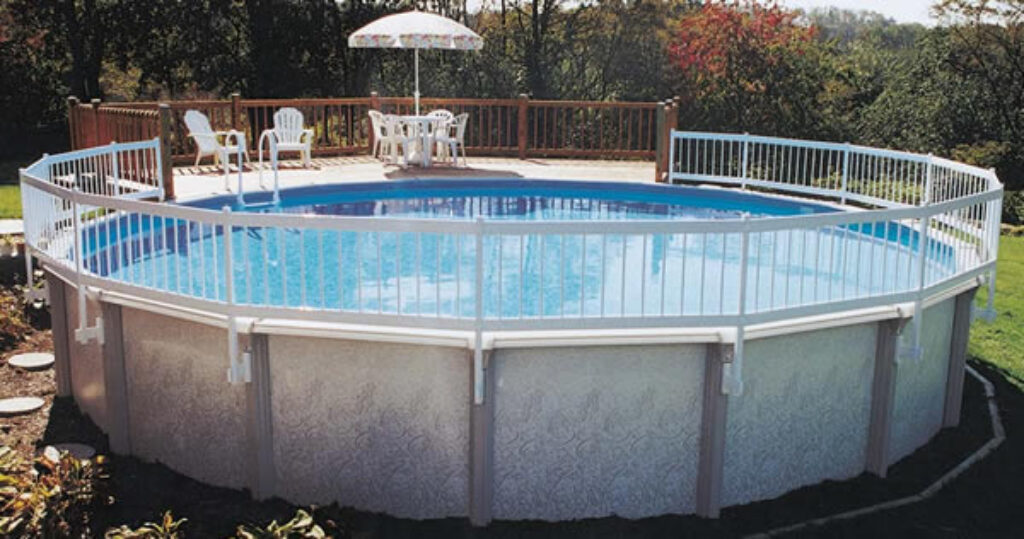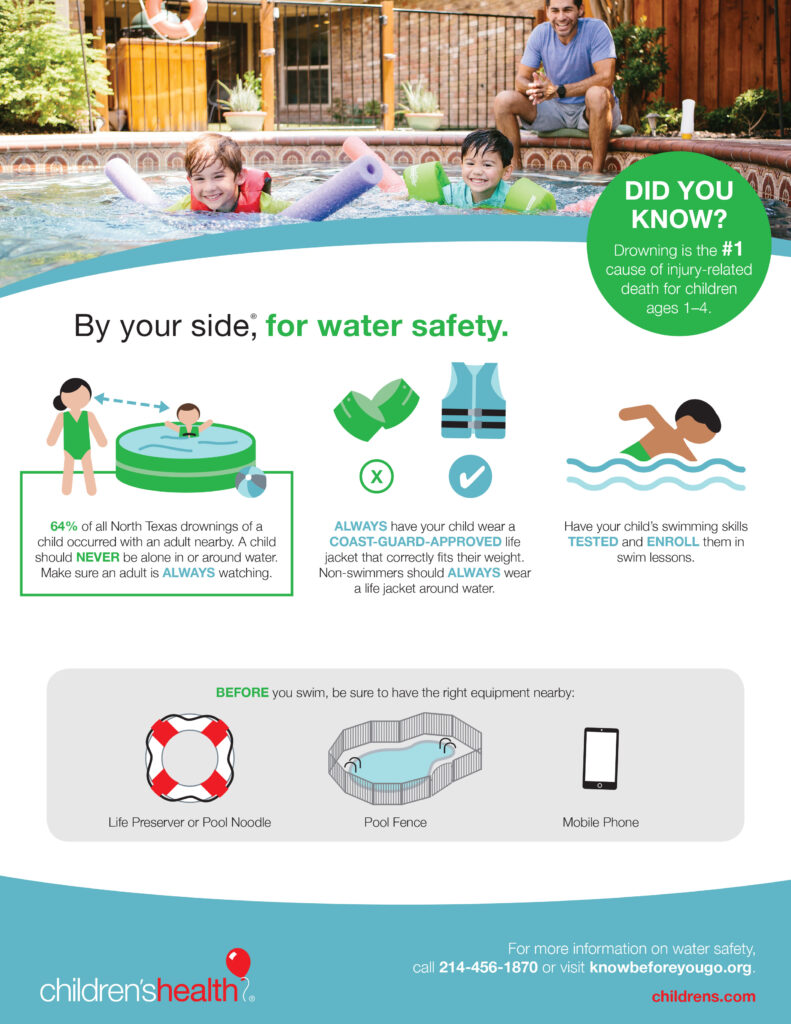Owning an above ground pool comes with a great deal of fun and relaxation, but it also requires a certain level of responsibility when it comes to safety. In this article, you will discover essential poolside safety measures that every above ground pool owner should know. From properly installing a sturdy pool fence to implementing strict pool rules, these measures will help ensure the well-being of everyone enjoying your pool.
1. Fence Installation
– Types of fences to consider
When it comes to ensuring the safety of your above ground pool, one of the most important measures you can take is installing a fence around it. Fences provide a physical barrier that prevents unauthorized access to the pool area, keeping children and pets safe. There are several types of fences to consider for your pool. Some popular options include aluminum fences, vinyl fences, and wooden fences.
Aluminum fences are a common choice due to their durability, low maintenance requirements, and attractive appearance. Vinyl fences are another excellent option as they are resistant to moisture, rot, and rust. Wooden fences, on the other hand, provide a warm and traditional look to your pool area.
– Appropriate fence height and material
When selecting a fence for your above ground pool, it is crucial to consider the appropriate height and material. The fence should be at least four feet in height to prevent young children from climbing over it. Additionally, the fence material should be sturdy enough to withstand external forces and resist damage. It is essential to choose a material that is resistant to water, corrosion, and fading as it will be exposed to the elements.
2. Gate Safety
– Self-closing and self-latching gate
A crucial component of pool safety is the gate. The gate provides access control and prevents unauthorized entry into the pool area. It is important to ensure that your pool gate is equipped with self-closing and self-latching mechanisms. A self-closing gate automatically closes behind you after passing through it, eliminating the risk of leaving the gate open accidentally. A self-latching gate ensures that the gate locks securely, preventing children from easily accessing the pool area without supervision.
– Proper gate location and access control
Besides having a self-closing and self-latching gate, it is also essential to consider the gate’s location and access control measures. The gate should be positioned to offer a clear view of the pool area, allowing adults to monitor activity from a distance. Additionally, it is important to keep the gate locked when the pool is not in use to prevent unauthorized access. Consider using a lock that is child-resistant and difficult for children to open without adult assistance.
This image is property of www.allstarpool.com.
3. Pool Covers
– Different types of pool covers
Pool covers serve as an additional layer of protection for your above ground pool. They help to keep the pool clean, reduce evaporation, and, most importantly, prevent accidental drownings. There are several types of pool covers available, each with unique benefits. Solid covers create a barrier that prevents anyone from falling into the water and also provide protection against debris. Mesh covers allow water to drain through while preventing the entry of leaves and large debris.
– Importance of using a pool cover
Using a pool cover is of utmost importance in terms of pool safety. Not only do pool covers prevent accidental drownings, but they also help to maintain water quality and reduce your pool’s maintenance needs. By covering your pool when it is not in use, you effectively eliminate the risk of someone falling into the water. This is particularly crucial if you have young children or pets at home. Remember to choose a pool cover that is specifically designed for above ground pools for optimal safety and functionality.
4. Pool Alarms
– Types of pool alarms
In addition to fences and pool covers, pool alarms serve as an important safety measure for above ground pools. Pool alarms are designed to detect and notify you of any motion or disturbance in the water, alerting you to potential dangers. There are various types of pool alarms available, including surface wave detection alarms and sub-surface disturbance alarms.
Surface wave detection alarms are triggered by the waves created by someone entering the pool. These alarms are suited for above ground pools as they can easily be installed on the pool’s surface. Sub-surface disturbance alarms, on the other hand, detect disturbances underwater and provide an additional layer of safety for your pool.
– Installing and maintaining pool alarms
Installing a pool alarm is a relatively straightforward process. Most pool alarms can be easily installed by following the manufacturer’s instructions and guidelines. It is important to position the alarm in a location that provides optimal coverage, ensuring that it can detect any movement in the water. Regular maintenance of the pool alarm is essential to ensure its proper functioning. Ensure that the alarm’s batteries are replaced periodically and that the sensors are clean and free from any obstructions.
This image is property of advancedpoolcare.com.
5. Safety Equipment
– Life rings and flotation devices
When it comes to pool safety, having the appropriate safety equipment readily available is crucial. Life rings, also known as life buoys, are essential tools that can be thrown to individuals in distress to provide buoyancy and keep them afloat until help arrives. Flotation devices, such as life jackets and pool noodles, can also provide additional safety for both children and adults. It is important to have a variety of sizes available to accommodate all users and ensure their safety in case of an emergency.
– First aid kits and emergency equipment
Having a well-stocked first aid kit near your pool area is essential in case of any accidents or injuries. The first aid kit should include essential items such as bandages, antiseptic ointment, scissors, and a CPR mask. Additionally, it is important to have emergency contact information displayed prominently near the pool area, including the nearest hospital or medical facility’s contact details. Being prepared with the necessary safety equipment and knowledge can make a significant difference in the event of an emergency.
6. Chemical Storage
– Proper storage of pool chemicals
Proper storage of pool chemicals is crucial to ensure both pool safety and the longevity of the chemicals themselves. Pool chemicals, such as chlorine and pH adjusters, should be stored in a cool, dry, and well-ventilated area away from direct sunlight. It is important to keep them out of reach of children and pets to prevent accidental ingestion or exposure.
– Handling and disposal of chemicals
When handling pool chemicals, it is vital to follow the manufacturer’s instructions and guidelines carefully. Always wear appropriate personal protective equipment, such as gloves and goggles, to protect yourself from any potential hazards. Avoid mixing different chemicals, as this can lead to dangerous reactions. When disposing of pool chemicals, never pour them down the drain or into the environment. Follow local regulations for proper disposal or consult with your local waste management authority for guidance.
This image is property of blog.intheswim.com.
7. Pool Maintenance
– Regular cleaning and inspection
Regular cleaning and inspection of your above ground pool are essential for ensuring its safety and proper functioning. Remove any debris, leaves, or other contaminants from the pool surface and skimmer basket. Brush the pool walls and floor to prevent the buildup of algae and bacteria. Additionally, inspect the pool regularly for any signs of damage, leaks, or worn-out equipment. Promptly address any issues or concerns to avoid potential safety hazards and costly repairs.
– Checking and maintaining water quality
Maintaining proper water quality is vital for both the longevity of your pool and the health of its users. Regularly test the water’s pH, chlorine levels, and other chemical parameters using a reliable pool testing kit. Adjust the chemical levels as necessary to ensure that they fall within the recommended ranges. Proper water maintenance will help prevent the growth of algae and harmful bacteria, creating a safe swimming environment for everyone.
8. Electrical Safety
– Proper grounding and wiring of pool equipment
Electrical safety is of utmost importance when it comes to pool maintenance. Ensure that all electrical equipment, such as pumps and heaters, are properly grounded and meet the necessary electrical codes and safety standards. Faulty wiring or improper grounding can lead to electrical shocks or even fires, posing a significant risk to pool users. Consult a qualified electrician if you have any concerns or need assistance with electrical installations or repairs.
– Avoiding electrical shocks and hazards
To prevent electrical shocks and hazards, it is important to follow some basic safety precautions. Avoid using electrical devices, such as radios or hairdryers, near the pool or when you are wet. Keep all electrical cords and outlets at a safe distance from the pool area, and never touch any electrical equipment with wet hands. In case of a power outage or storm, turn off all electrical equipment and disconnect them from the power source until conditions are safe again.
This image is property of www.childrens.com.
9. Pool Rules
– Enforcing safety rules
Establishing and enforcing pool rules is an effective way to promote safety and prevent accidents. Clearly communicate the rules to all pool users, including adults and children. Rules may include prohibitions against running, diving in shallow water, or rough play near the pool. Encourage everyone to follow these rules consistently to minimize the risk of accidents and injuries.
– Teaching children about pool safety
Children should be taught about pool safety from an early age. Teach them how to swim and the importance of not entering the pool area without adult supervision. Emphasize the rules and explain potential risks associated with unsafe behavior. Teach them about the dangers of running near the pool and how to use safety equipment correctly, such as life jackets. Regularly reminding and reinforcing these lessons will help foster a culture of safety and responsible behavior around the pool.
10. Adult Supervision
– Importance of constant adult supervision
No safety measure can replace the importance of constant adult supervision when it comes to pool safety. Regardless of the safety precautions in place, always ensure that a responsible adult is present and actively supervising when the pool is in use. Avoid distractions and remain vigilant, as accidents can happen in a matter of seconds. Remember that children can drown silently and quickly, so continuous supervision is key to preventing tragedies.
– Establishing pool safety guidelines
Establishing pool safety guidelines is crucial to ensure that everyone understands their responsibilities and the measures in place to maintain a safe pool environment. Clearly communicate the rules and expectations to all pool users, including visitors and guests. Encourage open communication and discuss any concerns or potential hazards collectively. By working together and adhering to established guidelines, you can create a safe and enjoyable pool environment for everyone.
In conclusion, ensuring poolside safety is essential for all above ground pool owners. By following the measures outlined above, such as installing a fence, using a self-closing gate, implementing pool covers and alarms, having the necessary safety equipment, practicing proper chemical storage and pool maintenance, prioritizing electrical safety, enforcing safety rules, and maintaining constant adult supervision, you can create a safe and enjoyable pool environment for yourself, your family, and your friends. Remember, poolside safety is everyone’s responsibility, and taking the necessary precautions can prevent accidents and save lives.



